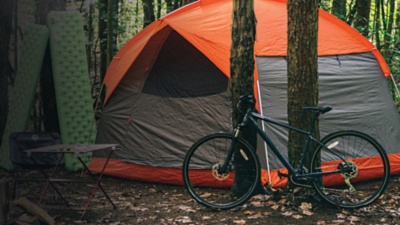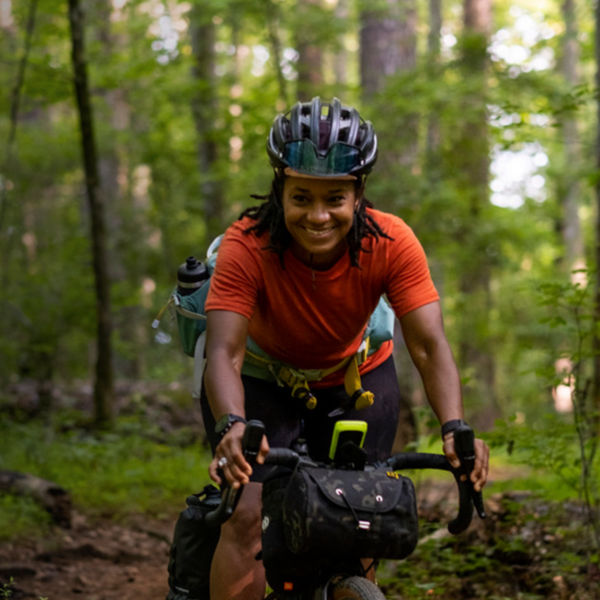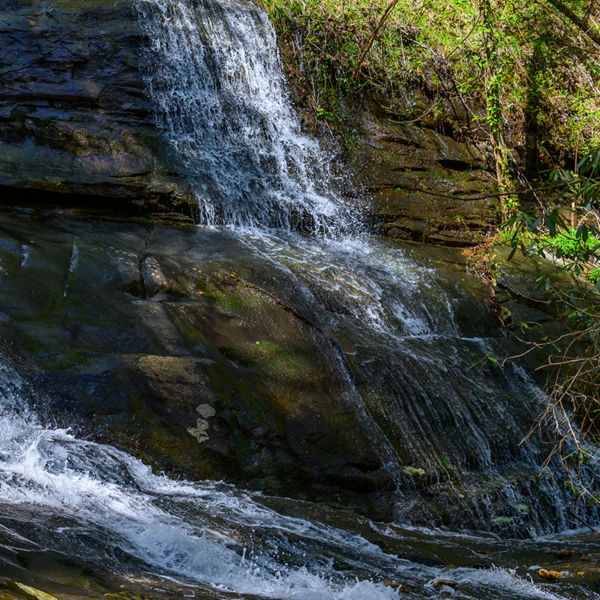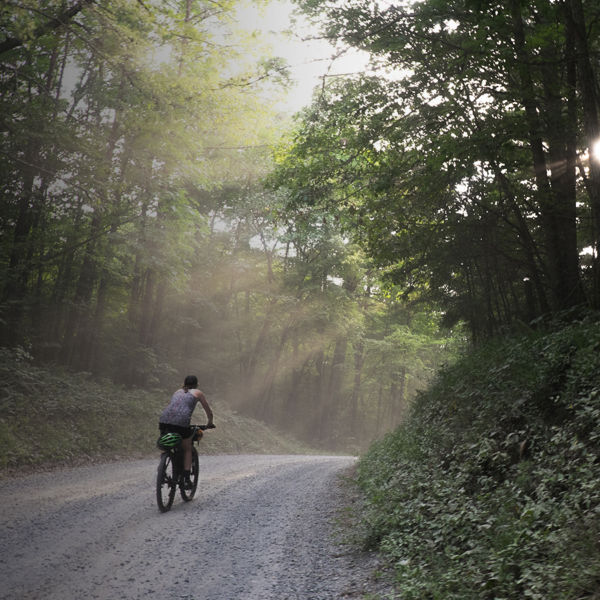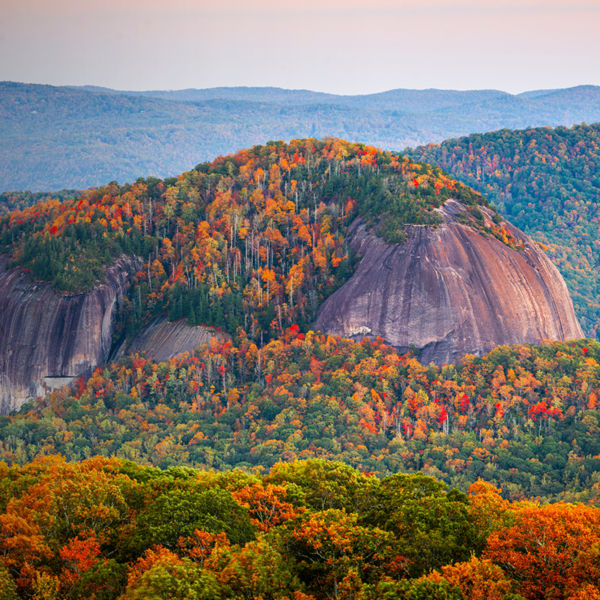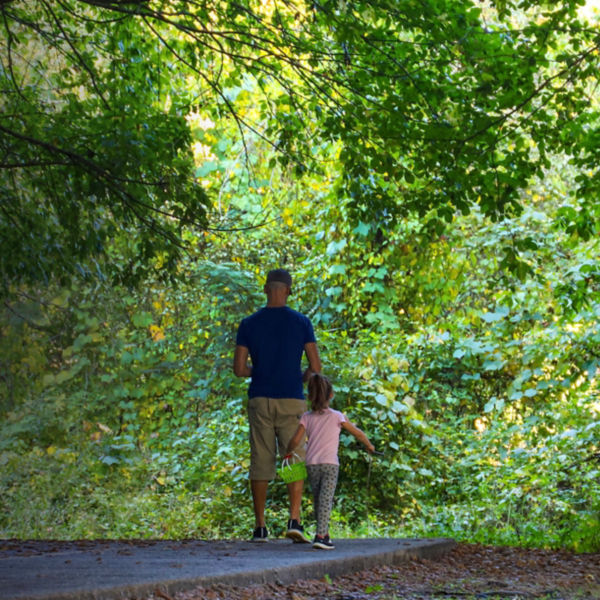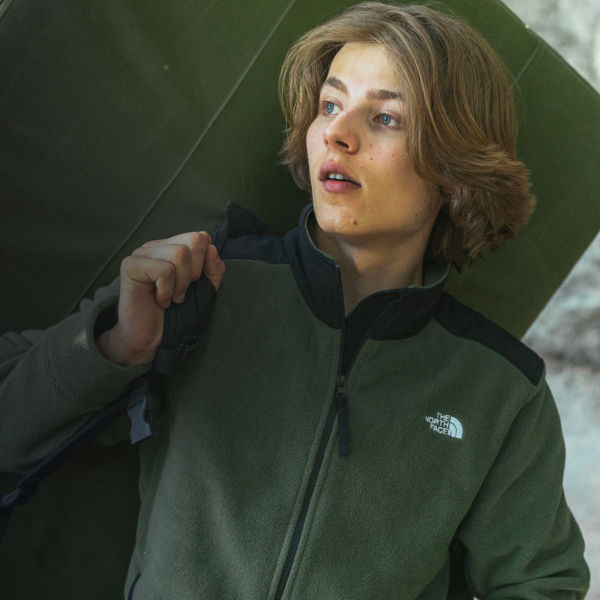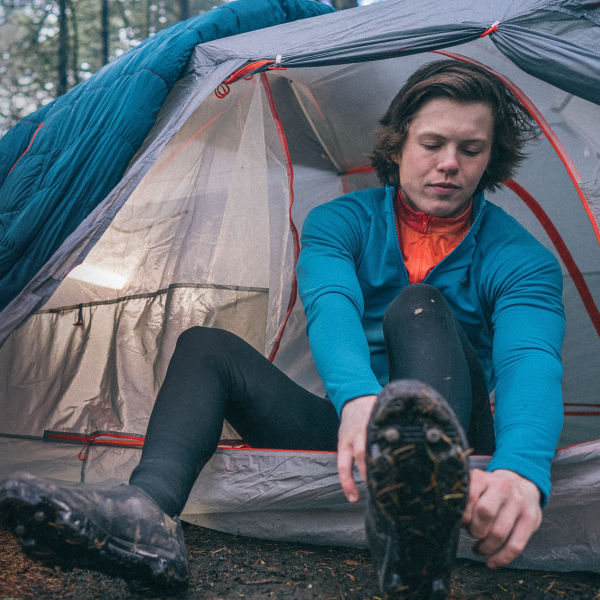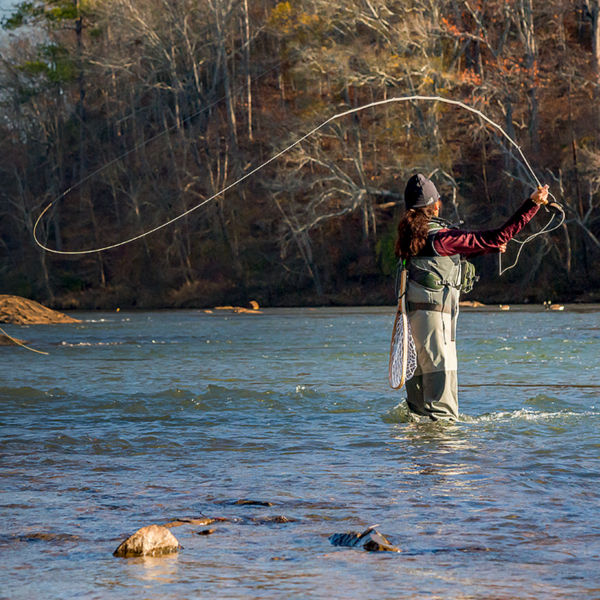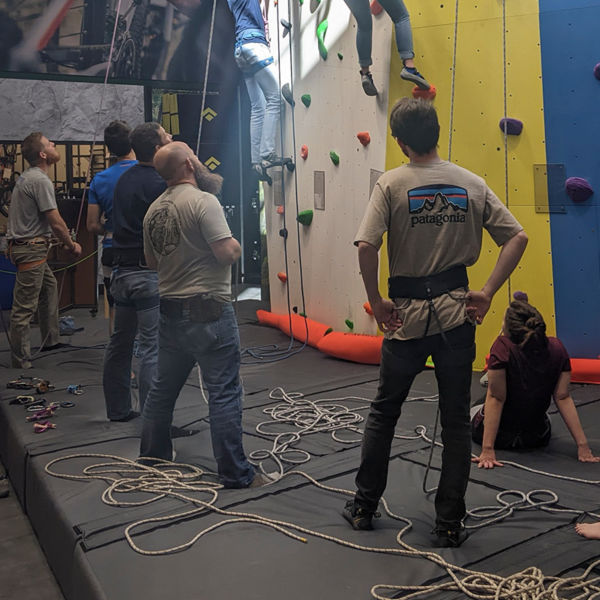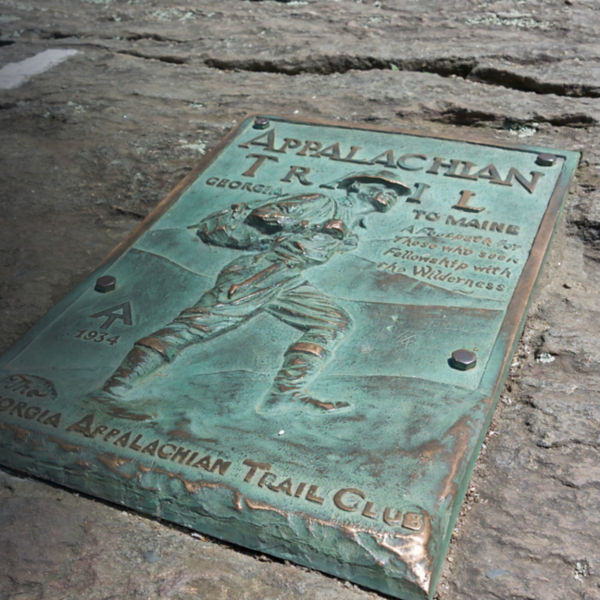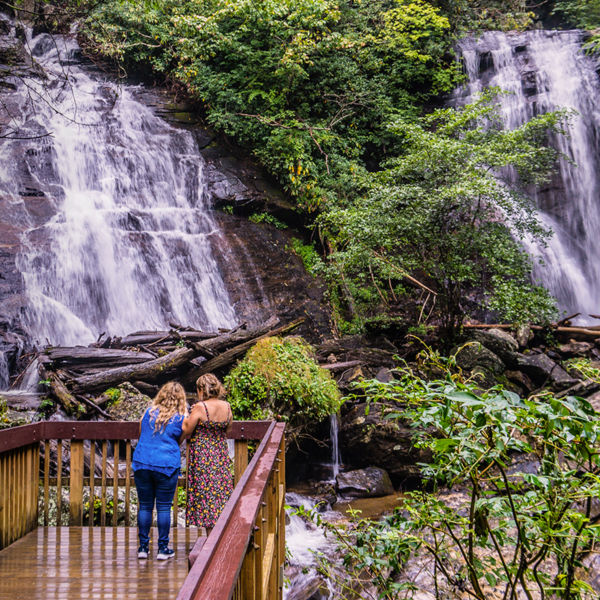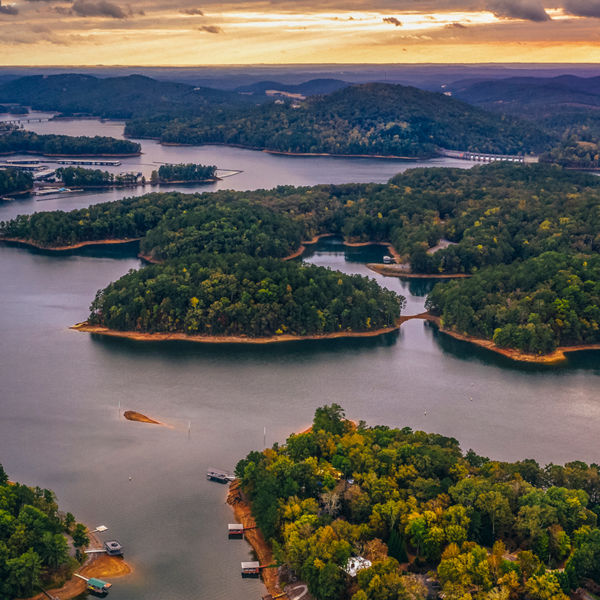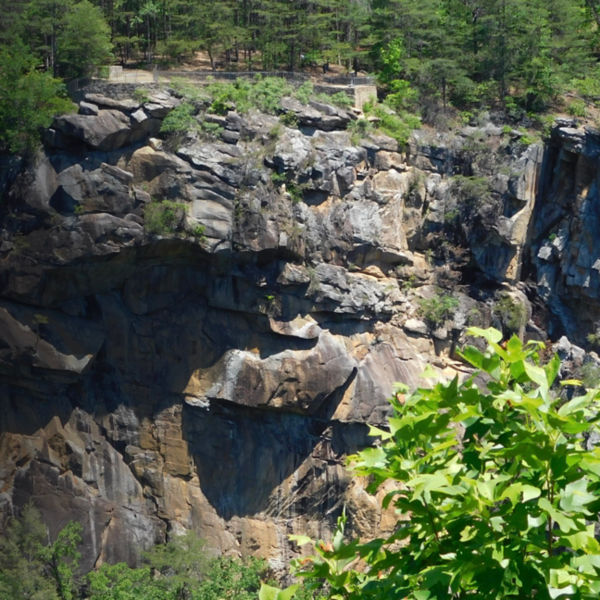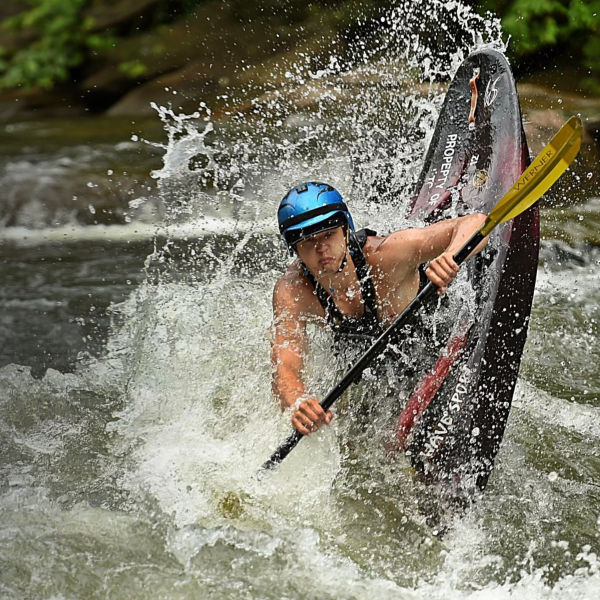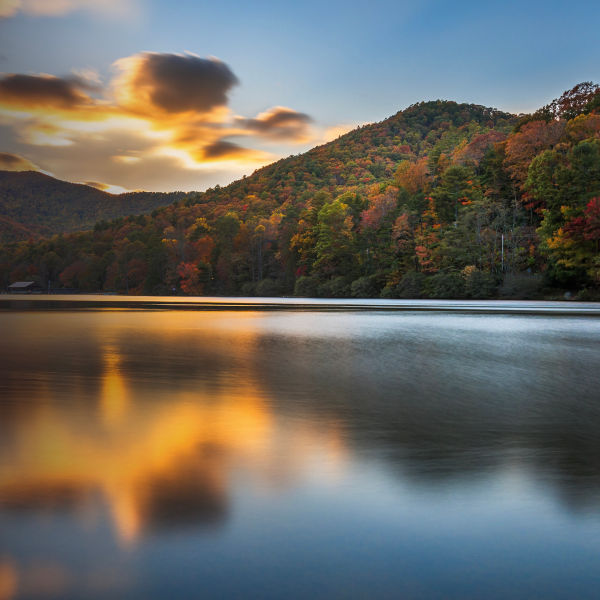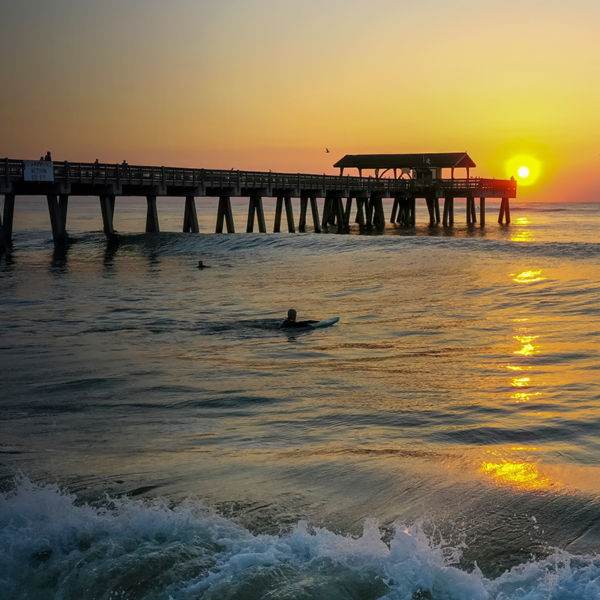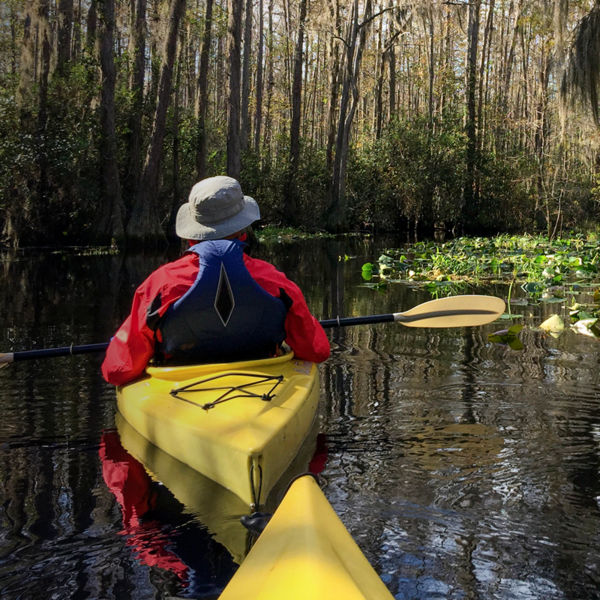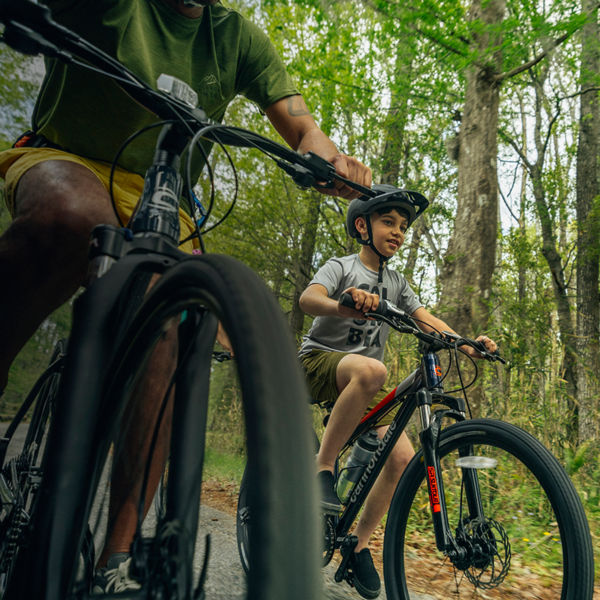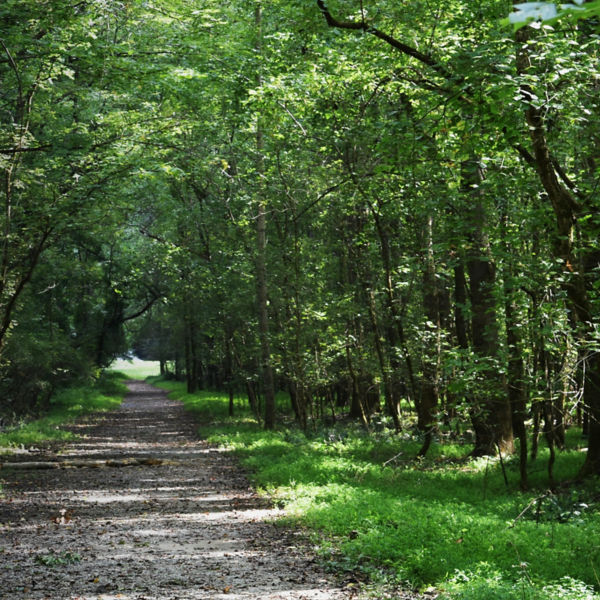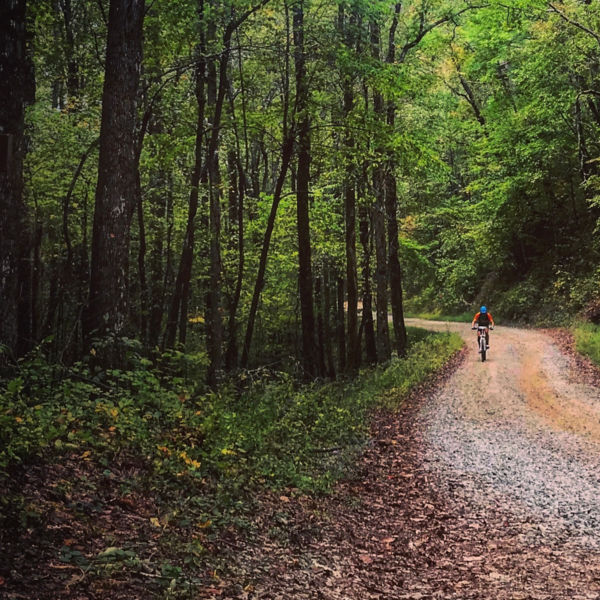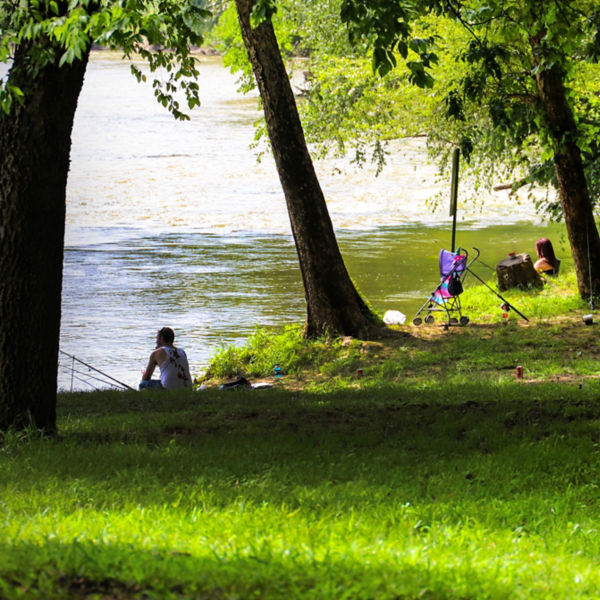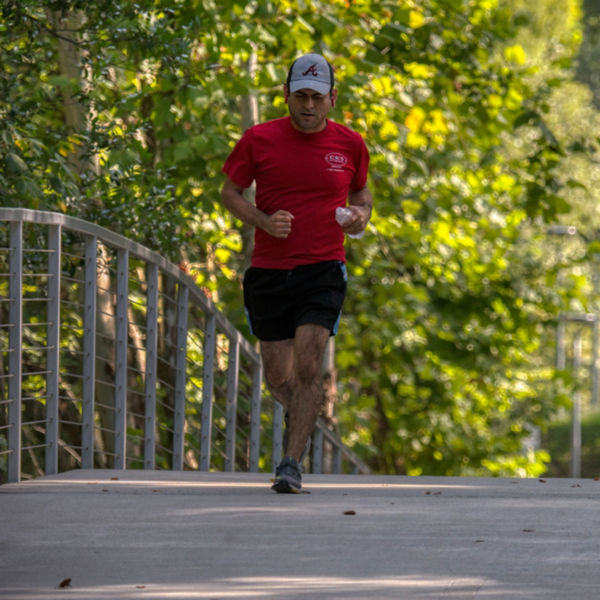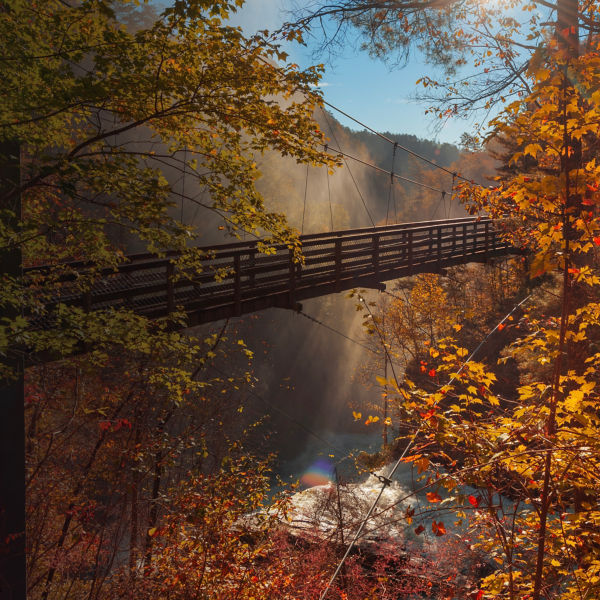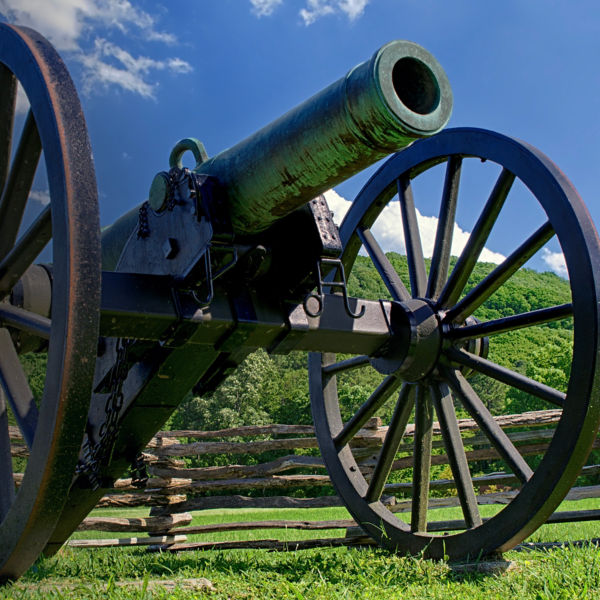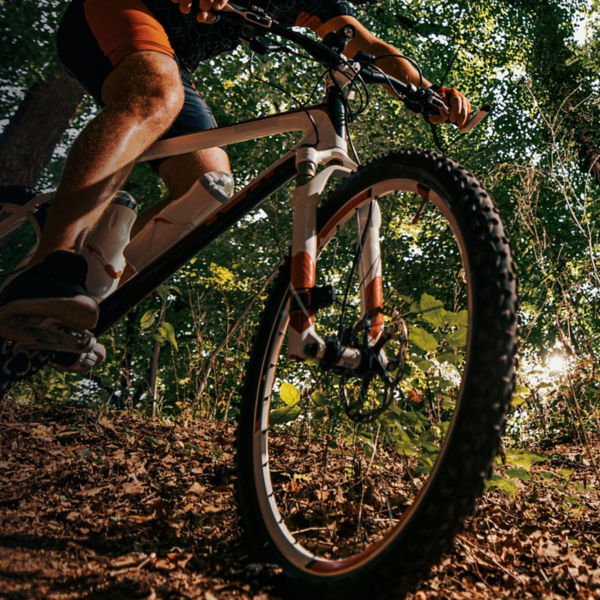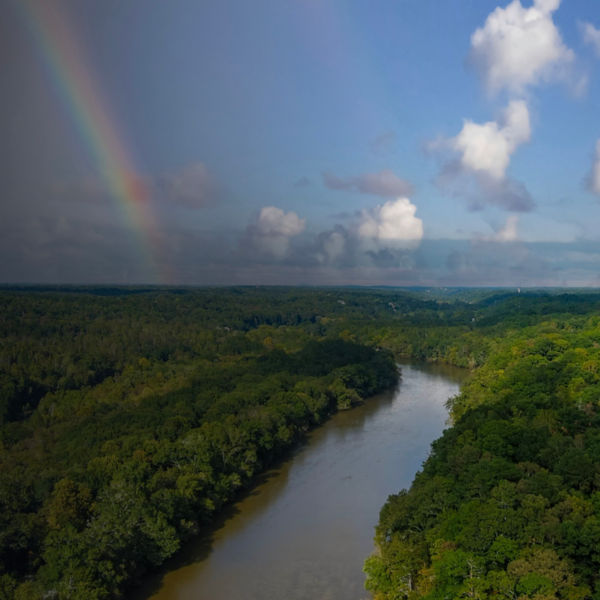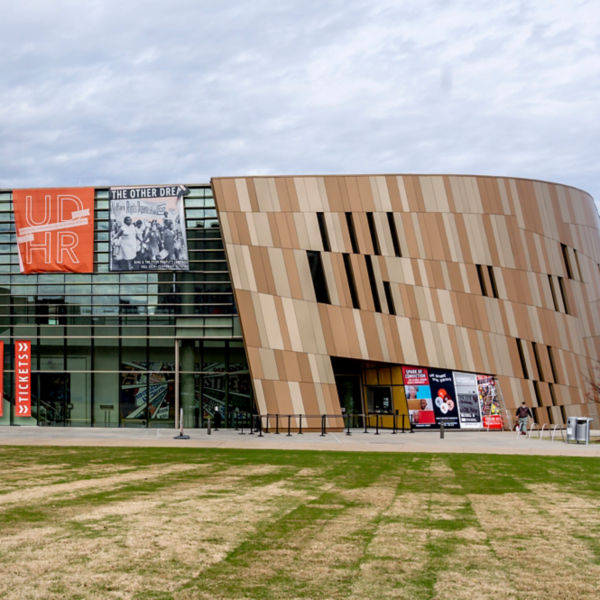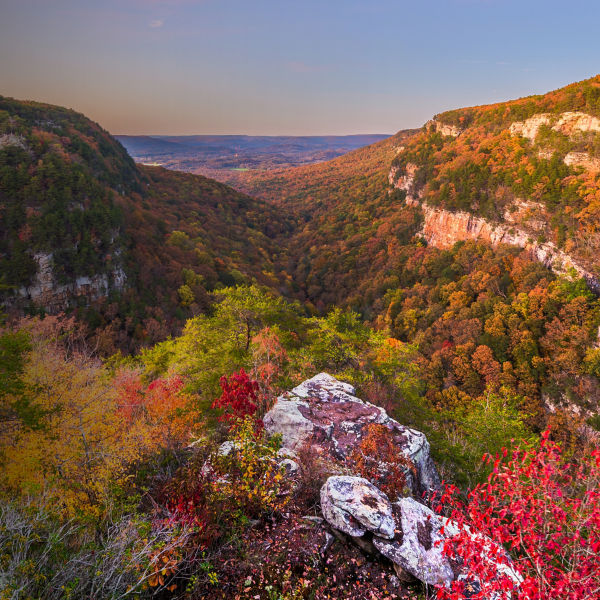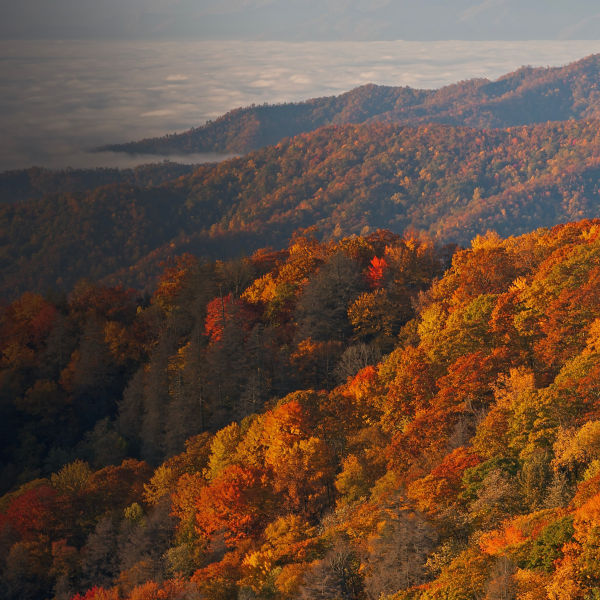
Most Georgians think of Allatoona or Amicalola as the best options for wilderness close to Atlanta. But those willing to venture just across the Tennessee border will find thousands of acres of forest, quiet campsites, 1,000-foot bluffs, and a vast, twisting river gorge laced through hiking trails. If you’re thinking that sounds like paradise, well, you’re not wrong. Welcome to Prentice Cooper State Forest.
Clocking in at 26,000 acres, Prentice Cooper is one of the biggest uninterrupted swaths of public land in southeastern Tennessee. It’s a popular weekend getaway for Chattanooga residents, but at just two hours from Kennesaw, it’s within striking distance for North Georgians, as well. Here’s what you need to know to make the best of your next visit, including:
- Land history
- Campgrounds
- Seasons
- Other activities
- Getting there
- Local haunts
Land history
The land surrounding the Tennessee River, which runs through the heart of the forest, was once inhabited by the Cherokee and Yuchi peoples, who built complex villages, farms, and fish traps to take advantage of the area’s rich natural resources. These people were forced from their homes and marched west to reservations, a brutal trek known as the Trail of Tears. However, the land still remains important to many Cherokee descendants, and visitors today can still see evidence of their passing at a handful of 10,000-year-old archeological sites which line the Tennessee River Gorge.
Prentice Cooper State Forest was later designated as agricultural land for the state of Tennessee and named for its 39th governor, who served in the 1940s and increased parklands and educational funding during his tenure. Today, most of the forest is dedicated to sustainable forestry study and timber harvesting. Come fall, the forest is also a popular hunting ground for locals, who rely on the area’s turkey and deer populations to provide sustainably sourced meat for their families.
Camping
There are a few different camping options within Prentice Cooper and just outside the forest boundaries. The right campground for you will depend on your preferred amenities and the time of year you hope to visit.
Hunters Check Station Camping Area
Located near the northern edge of the forest, Hunters Check Station is a quiet, shady refuge from modern life. It offers free camping at a handful of primitive sites. It’s equipped with a pit toilet, a few picnic tables, and fire rings. But you won’t find any running water, showers, or electrical hookups, which makes this a perfect spot to get off-grid and back to nature. One word of warning: While this campground is popular among all kinds of outdoor users, it can get crowded during hunting season (September through November). Sites are first-come, first-served, so try to arrive early to snag a spot if you visit in the fall.
Davis Pond Camping Area
This free, first-come, first-served campground is close to the Tennessee River Gorge, fantastic rock-climbing, and gorgeous trails. Here, you’ll find plentiful shade trees and a small pond, as well as picnic tables and fire pits. A few words to the wise: This campground is at the end of a rough gravel road, so four-wheel-drive vehicles are recommended. And while there is a pit toilet, the facilities are not always in great shape. Bring your own TP just in case. (The campground is also closed during big-game hunts, which occur September through November; see “Seasons” below for more info.)
Running Water Creek Campground
A private, exclusively solar-powered campground, Running Water Creek is located in Whiteside, Tenn. That makes it the closest option for Georgia visitors, and a great basecamp for accessing the rock climbing and trails at nearby Sunset Park. However, it is a farther drive from Prentice Cooper State Forest. Unlike the prior two options, camping here isn’t free, but you get what you pay for: secluded campsites, a few tiny glamping cabins, well-maintained bathrooms, and plenty of parking.
Raccoon Mountain Campground
If you’re looking for more of an all-inclusive experience, check out Raccoon Mountain, a paid campground located just outside Prentice Cooper State Forest. Here, you can book a tour of the nearby cave system, swim in the outdoor pool, or spend all afternoon grilling at your spacious campsite. Since Raccoon Mountain is a little closer to the city and a little more built-up, it might not feel quite like a wilderness escape. But the facility’s fitness center, dog park, and fully equipped RV sites can come in handy for longer stays.
Seasons
Prentice Cooper is open all year-round, though the best time to visit is March through August when temperatures are warm and hunting season has yet to begin. (Hunting season starts up in September, at which point some areas of the forest are closed for safety reasons.)
If you go during fall or winter, keep an eye out for seasonal road closures. All side-roads and trails are closed to vehicles December 20 through March 15—make sure to check for the latest info on closures, including hunting closures: tn.gov
